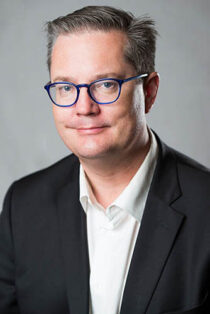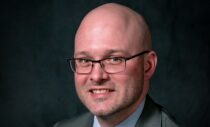Online
Join us on Friday, October 14 at 11 a.m. PDT for a livestream panel discussion as part of Schütz Fest marking the 350th anniversary of the death German baroque composer of Heinrich Schütz. This is in advance of our concert on Saturday, November 5 – From War to Peace: Heinrich Schütz and His Time. Born in 1585, Schütz had enjoyed an extraordinarily long life by the time of his death in 1672, mastering the widest diversity of musical practices ranging from the high Renaissance polyphony of his youth to the modern theatrical styles from Italy that dominated his older years. Having enjoyed the heights of Renaissance culture as a young man he would also suffer through the harsh years of religious and geopolitical conflict in Germany that we today call the Thirty Years War (1618–1648). The resurgence of war in our own time makes this a fitting occasion to recall how music reflects and shapes our understanding of conflict and reconciliation.
Moderated by Alex Fisher, PhD. Professor of Musicology at UBC, the distinguished panel will discuss topics such as: how German composers reacted and adapted to the circumstances of conflict in the early 17th century including musical aspects of the Thirty Years War, how composers captured heightened emotional states in their music, and how musical culture and soundscapes were heard across the divides between Catholicism and Protestantism.
Joining Dr. Fisher will be Bettina Varwig, PhD. Associate Professor at the Faculty of Music and Fellow of Emmanuel College, Cambridge University and Derek Stauff, PhD., Associate Professor of Music, Hillsdale College, Michigan.

Alex Fisher, Host
Alex Fisher is a co-founder of Cappella Borealis and Professor of Music at the University of British Columbia since 2002. A native of Massachusetts, he studied trombone at Northwestern University (B.Mus., 1992) and received degrees in musicology from Indiana University (M.A., 1995) and Harvard University (Ph.D., 2001). A musicologist specializing in the music and soundscapes of Germany in the Renaissance and Baroque eras, he is the author Music and Religious Identity in Counter-Reformation Augsburg (Ashgate, 2004) and Music, Piety, and Propaganda: The Soundscapes of Counter-Reformation Bavaria (Oxford, 2014), as well as of a range of articles and editions on music and religion in the post-Reformation era. He began studying sackbut and early winds at Northwestern University and has performed with the Indiana University Early Music Institute, musica intima, La Modestine, and in various productions of Early Music Vancouver.

Dr. Derek Stauff, Guest Speaker
Dr. Derek Stauff is a music historian and an organist. As both historian and performer, he focuses on music from early-modern Germany into the age of J.S. Bach. He wrote his dissertation on Lutheran music and politics during the Thirty Years’ War, focusing particularly on composers working in Leipzig. As part of my work, he also edits music from the 17th century.
At Hillsdale, he teaches the full gamut of music history from ancient times up to the present, focusing especially on European music. He teaches The Understanding of Music (MUS 204 & 206) core classes, which focus on basic listening while surveying music from throughout history. In addition, he teaches the three-semester music history sequence taken by majors and minors in music. These classes focus on listening but also involve score reading and writing research papers. Finally, he offers an advanced seminar where students focus on special topics. By studying a narrowly defined topic in great detail in a small class, we better learn to apply higher-level thinking skills through research, writing, and presentations. Seminar topics over the past years have included the keyboard music of J.S. Bach, Handel’s Messiah, the polyphonic mass in the Renaissance, and Stravinsky’s Rite of Spring.
Dr. Bettina Varwig, Guest Speaker
Dr. Bettina Varwig is an Associate Professor at the Faculty of Music and a Fellow of Emmanuel College. Previously she was Senior Lecturer in Music at King’s College London, where she also took her undergraduate degree. She completed her doctoral studies at Harvard University in 2006, followed by a Fellowship by Examination at Magdalen College, Oxford and a British Academy Postdoctoral Fellowship at the University of Cambridge and Girton College. She joined the Faculty at Cambridge in her current post in 2017.


